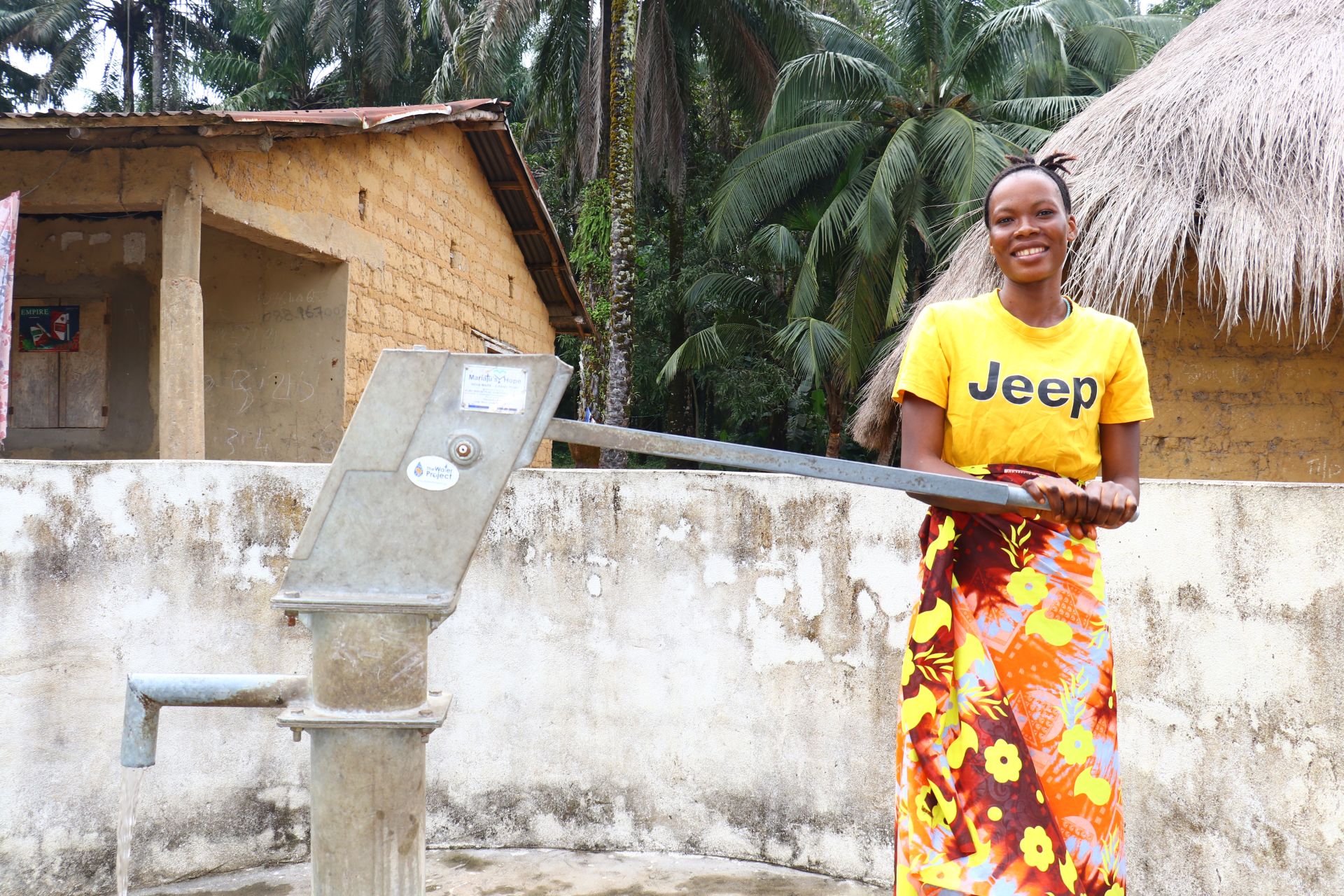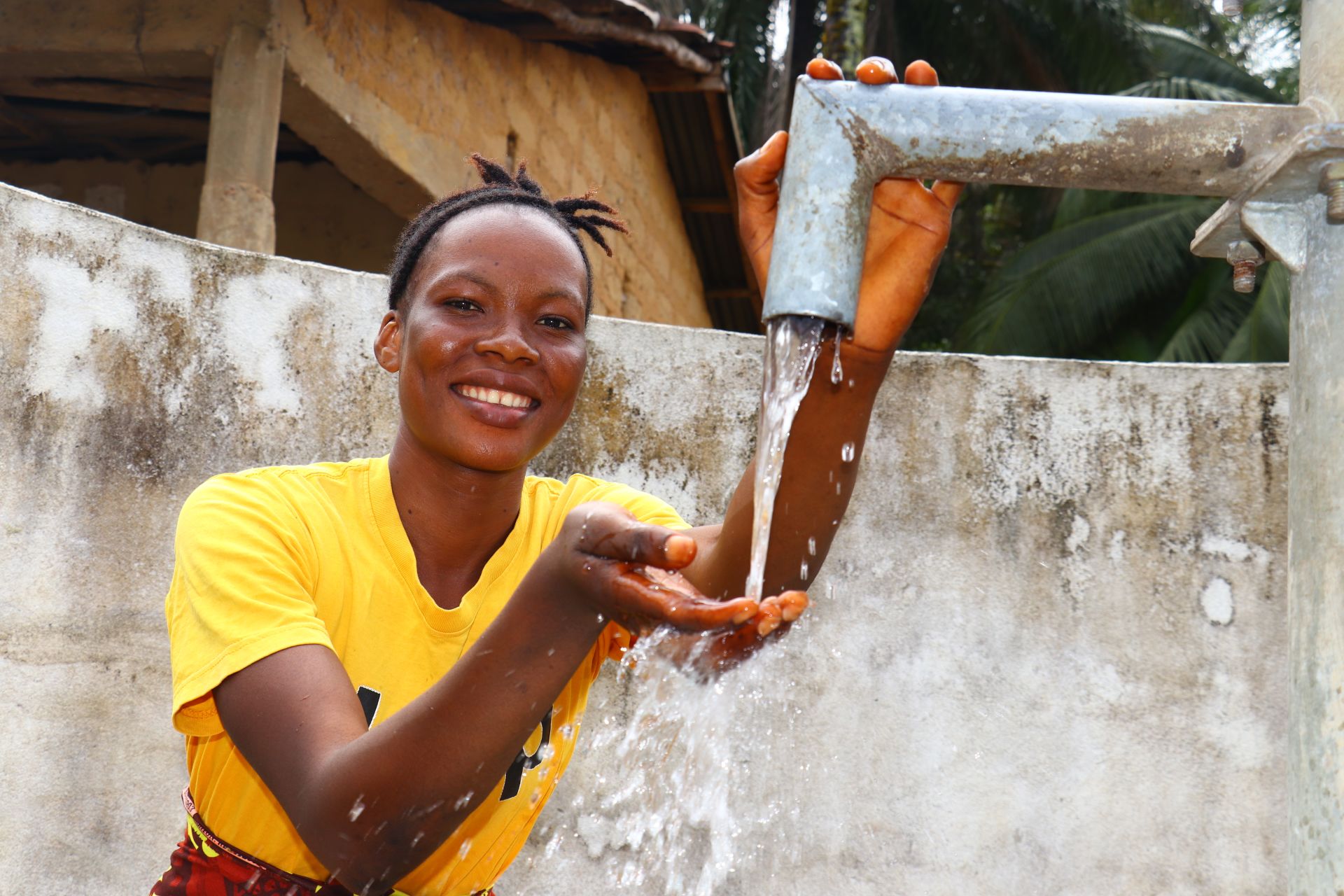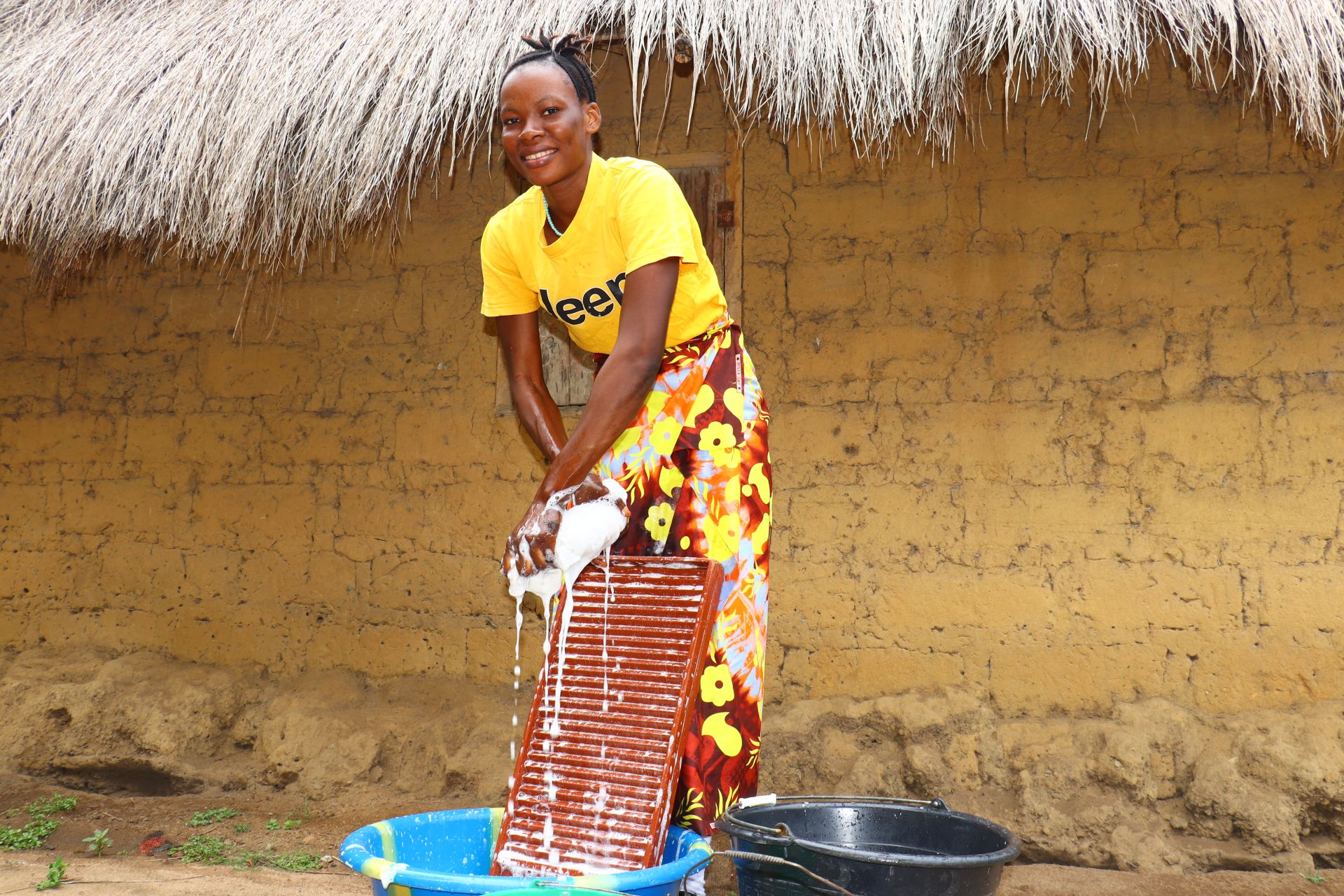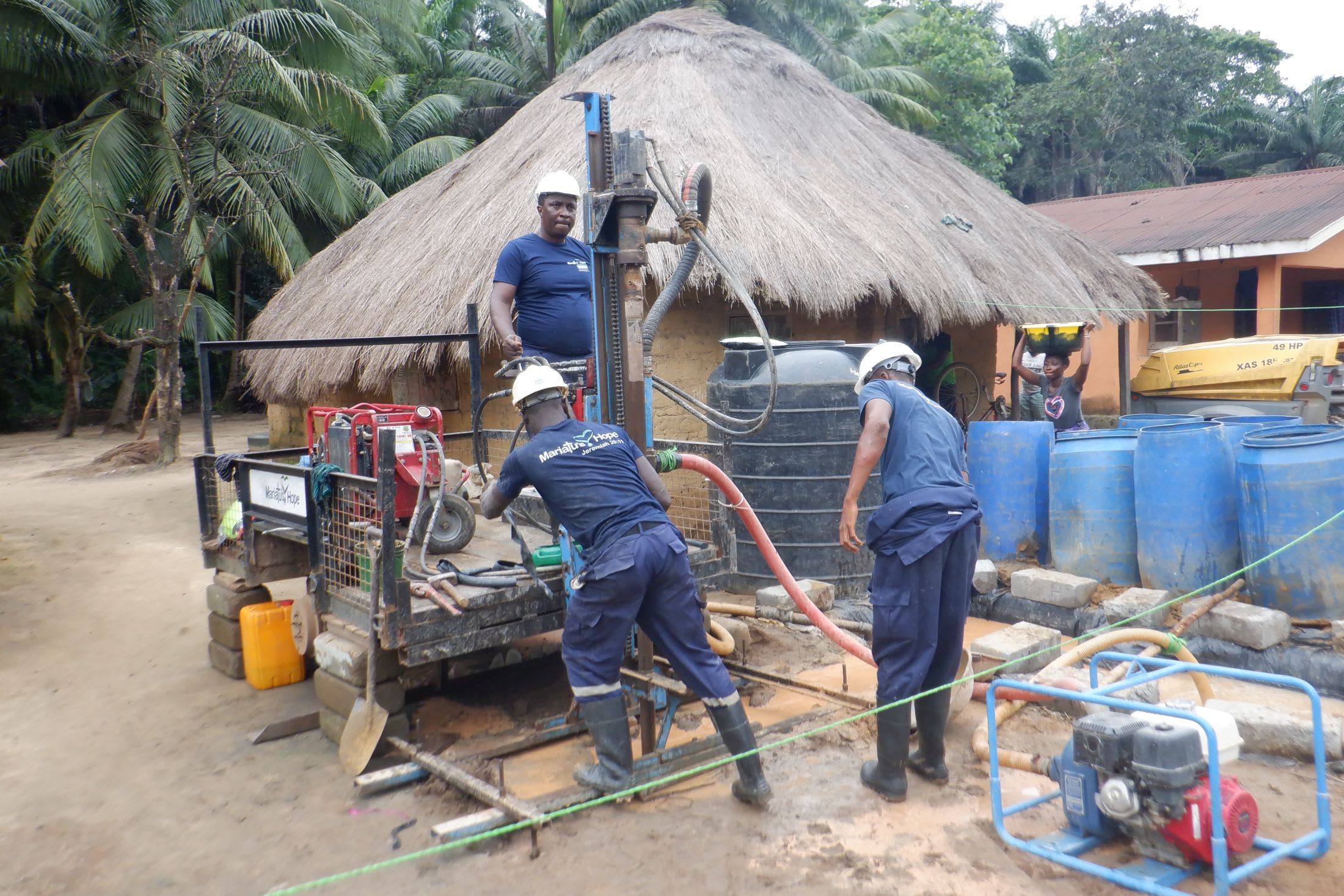The 189 people of Katongha Community struggle to access sufficient water. During the dry season, March to April, their well is dry, and they are left with no choice but to collect water from the distant stream (seen below), which is unsafe to consume.

Field Officer Alie Kamara said, "The main water source for this community is a hand-dug well with a hand pump, which is seasonal and has a broken well pad. This source does not produce enough water for this population. They do not chlorinate the water and have not tested it for quality. There is no perimeter fence to this well, and domestic animals easily access it."
"The alternative water source is a stream, and it is open to contamination. There is litter floating on the water, and the color of the water is dark. The surrounding area of this source is dirty. It is hard to access and not safe to drink because it produces saltwater and freshwater, shared," he continued.
Without access to safe, reliable water, the people of this community are unable to complete their daily tasks, ones we often take for granted. Food preparation and cleaning are put off, and livelihoods that rely on water, such as palm oil processing, are reduced, taking away valuable resources from every family.

35-year-old farmer Fatmata Kamara works hard to meet her family's needs while juggling the water crisis (shown below at the seasonal well). She shared," The water situation in my village affects me greatly. Early in the morning, I must bathe my kids; then I prepare food for them. I must go to the stream to launder my children's clothes. Sometimes I leave them at home, later they will cry for me. But when I get home, I must breastfeed my baby before hanging my clothes."

"Also, I am a farmer who produces palm oil. I find it difficult to produce a large quantity, or sometimes it is hard to complete the process. This will affect my production and income. Also, preparing food at home would be a hard task for me because when the pump breaks down, I have to fetch stream water, but the stream water is not safe to cook with, so I have no choice but to just manage it. It is the only water available at that moment," Fatmata added.
Fatmata toils tirelessly, trying to ensure her family is cared for. She risks using unsafe water without a reliable water source, knowing that her children may fall ill because she has no other choice.
Balancing responsibilities while managing the water crisis is also a burden shared by children. 15-year-old Mariatu K., seen below carrying water from the seasonal well, shared her experience.
"Because of the water problem in this community, it would be very difficult for me to complete my housework. There is only one well in this community, which is seasonal, and due to a huge population, the well gets overcrowded. In the morning, I must go to the well to fetch water and then return home because of the high tension [at] the well. This situation causes me to be late for school. When I return home from school, I must fetch water for my mother to cook food for us."

"Also, I usually fetch water from the stream, which is a hard task because this source is far from my house. Due to the distance, it would be very difficult for me to make many trips. Fetching more will make me tired, and then I will go to bed early, which causes me not to be able to study my school notes. This will cause me to perform poorly in my academic work," she continued.
Girls are often disproportionally affected by a water crisis. Their education is often not a priority, so when girls get the opportunity, they must work extra hard to balance their education and water duties.

Installing a well in the community will help people like Fatmata care for their families without fear of using contaminated water. Mothers won't have to leave their young children to search for water, and they can hopefully have time to rest. Children like Mariatu won't be consumed by the collecting water, enabling them to fully invest in their education and create a brighter future for themselves.
The Proposed Solution, Determined Together...
At The Water Project, everyone has a part in conversations and solutions. We operate in transparency, believing it benefits everyone. We expect reliability from one another as well as our water solutions. Everyone involved makes this possible through hard work and dedication.
In a joint discovery process, community members determine their most advantageous water solution alongside our technical experts. Read more specifics about this solution on the What We're Building tab of this project page. Then, community members lend their support by collecting needed construction materials (sometimes for months ahead of time!), providing labor alongside our artisans, sheltering and feeding the builders, and supplying additional resources.
Water Access for Everyone
This water project is one piece in a large puzzle. In Kenya, Sierra Leone, and Uganda, we're working toward complete coverage of reliable, maintained water sources that guarantee public access now and in the future within a 30-minute round trip for each community, household, school, and health center. One day, we hope to report that this has been achieved!
Training on Health, Hygiene & More
With the community's input, we've identified topics where training will increase positive health outcomes at personal, household, and community levels. We'll coordinate with them to find the best training date. Some examples of what we train communities on are:
- Improved hygiene, health, and sanitation habits
- Safe water handling, storage & treatment
- Disease prevention and proper handwashing
- Income-generation
- Community leadership, governance, & election of a water committee
- Operation and maintenance of the water point




 Borehole Well and Hand Pump
Borehole Well and Hand Pump
 Rehabilitation Project
Rehabilitation Project


























